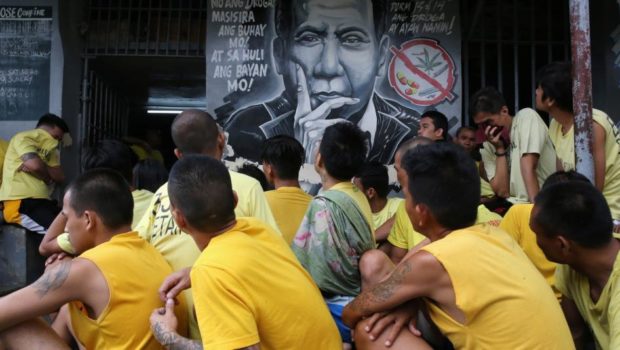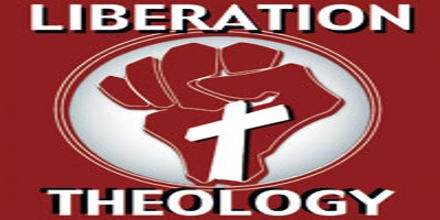War on the poor vs. liberation theology

Loiterers picked up by the police in the recent crackdown on ‘tambays.’ REUTERS PHOTO
In 1971, a year before Ferdinand Marcos declared Martial Law in the Philippines, a theologian from South America, Gustavo Gutierrez, published the landmark book, “Teología de la Liberación.” A parish priest in Peru, whose ministry inspired him to delve into the relevance of Christ’s message vis-a-vis the plight of the poor, Father Gutierrez’s ideas were initially viewed with concern because of their perceived similarities to Marxism. It took some time for Rome and the rest of Christianity to embrace the radical ideas of Liberation Theology.
Gutierrez’s core message is simple in its directness: the church in the 20th century, if it were to remain faithful to Christ’s teaching, must preferentially focus its attention and resources on the poor.
While plumbing the depths of Christ’s parable of the Good Samaritan, Father Gutierrez invites us to rediscover love of neighbor, whether friend or stranger or foe, as the central driving force of our Christianity. Such a Christ-like attitude inevitably leads to a “liberating praxis” which compels us to strive towards the economic, spiritual and intellectual liberation of the oppressed.
Fast forward almost half a century and Argentine Cardinal Jorge Mario Bergoglio names himself after the 12-century poverello friar, St. Francis of Assisi. Pope Francis proclaims that the Catholic Church should be “a church that is poor and for the poor.”
A former student of Gutierrez, the martyred Archbishop of El Salvador, Oscar Romero, will be canonized a saint in October 2018. Gutierrez is widely regarded now as the most influential theologian of the 20th century. His 1971 book and subsequent works have ignited a vast literature dealing with the theology of the poor.
Ferdinand and Imelda Marcos did not get the memo. To be fair, the works of Gutierrez were not translated from the original Spanish until years later. They must not have come across the theological dissertations on why the structures in society which keep the poor continually oppressed need to be dismantled. Otherwise, their conjugal directives would not have led to the torture of +35,000 and the death of 3,257 Filipinos.
Fast forward half a century later and it is painfully obvious that neither Rodrigo Duterte has read about the ideas of the most relevant theologian post Vatican II. Otherwise, his policies would not have led to the extermination of thousands of Filipino citizens in the poorestbaranggays— +22,000 according to Human Rights organizations — nor would he have been glib about calling such poverty-stricken folks subhuman.
When Duterte pays lip service to doing everything to serve the masses, the cheers are deafening, particularly from financed trolls. The official propaganda machine (euphemistically called the Presidential Communications Operations Office) works incessantly, greased by billions of pesos (674M alone to secure the coveted ASEAN chair).
Regrettably, even churchgoers in a predominantly Catholic nation, including members of the clergy who should be familiar with the implications of social injustice and structural sin, unwittingly buy into Duterte’s utopian narrative. And those who should be leading the charge in the defense of the poor and marginalized are sidelined by a pervading “bahala na” cultural attitude and a medieval interpretation of Divine Providence.
As Duterte wages an “all-out war against drugs,” Chinese manufacturers of deadly shabu and Filipino drug lord counterparts remain unscathed while genocidal forces are unleashed on the urban and rural poor. While the poorest of the poor are hogtied and summarily executed by police and vigilantes, high level negotiations facilitate the flow of renminbi billions, which spawns a newly-minted oligarchy.
The “war on drugs” may as well be the “war on the poor.”
Funds that should go into programs for training and employment, education, rehabilitation, etc. instead are diverted into unaccountable treasuries of the Department of Tourism, the Presidential Communications Operations Office, police forces and allied instruments of propaganda and repression.
Marcos, the former dictator who had ravaged the country for two decades, is hailed a hero and buried accordingly. His family, who was complicit in the systematic raid of the national treasury, is invited back into the political inner sanctum, their rotten image effectively photoshopped. The Presidential Commission on Good Government (PCGG) is abolished to decapitate its ability to recover what the Marcoses swiped from the national coffers.
The Tax Reform for Acceleration and Inclusion (TRAIN) law raised the price of essential commodities and impacts the poorest primarily. When public transportation drivers, among the poorest segments of Philippine society, complained about rising prices of fuel and petroleum products, budget secretary Benjamin Diokno reprimanded them for being crybabies, callously pointing out that “the poorest ten percent” do not pay taxes anyway.
Duterte’s supporters point to peace and order and their sense of security as justification for the president’s brutal war on drugs. They believe that extrajudicial killings are a necessary evil to achieve what has long evaded the Philippines — a stable and progressive state of affairs.
Hamlet’s ”the devil hath power to assume a pleasing shape” (Act 2, scene 2) has relevance here. This is what St. Ignatius of Loyola, the astute commentator on discernment, refers to as “the serpent’s tail.” In other words, what might appear good on the surface might actually be rotten inside. What might appear as an angel of light may actually be the devil himself, utilizing deceptive good to gradually lead the unsuspecting to depravity.
It is critical that such deception is unmasked. Filipinos should not be seduced by propaganda touting the extermination of their fellow citizens as the only pathway to national security and progress. Many Germans fell into such error in Hitler’s Third Reich.
Sadly, the national deception seems to have metastasized. Even Duterte’s crass exegesis of Genesis, including his arrogant and blasphemous contention that “God must be stupid” has not roused the nation from its passivity.
Liberation Theology and the preferential option for the poor are implemented upside down in today’s Philippines. Despite the well-heralded visit of Pope Francis, who brought with him the message of Christ´s mercy, the poorest Filipinos are currently the recipients not of compassion but of summary execution, of bullets instead of rice.
July 2, 2018


